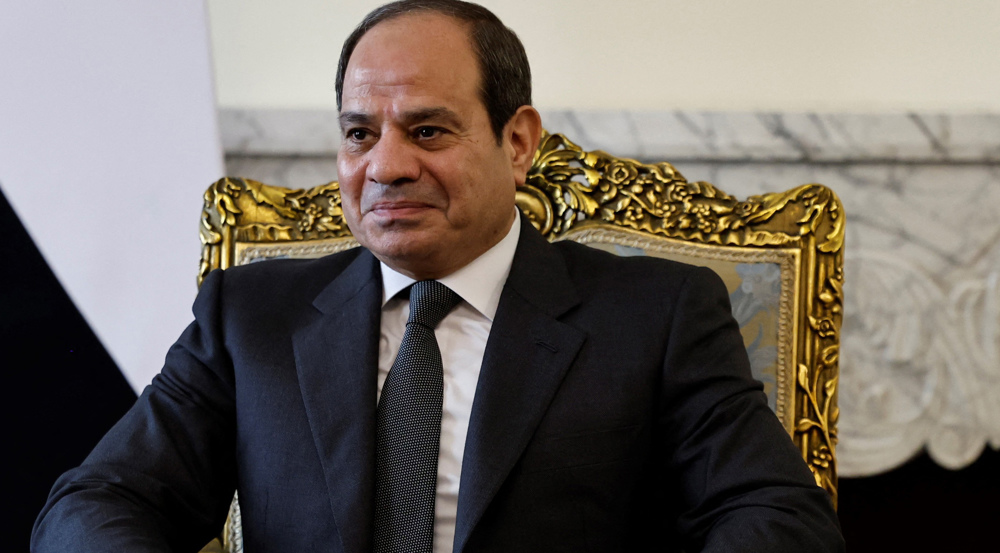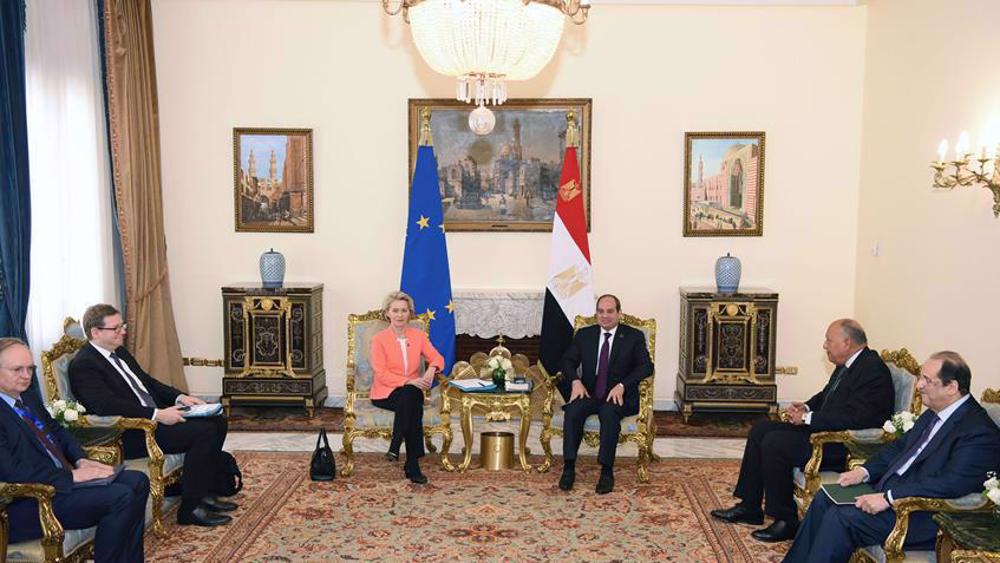Egypt raises fuel prices in IMF-backed austerity drive
Egypt has announced steep increases in fuel and cooking gas prices as part of the country’s economic reforms and austerity measures tied to an International Monetary Fund (IMF) loan to overhaul its ailing economy.
The price rises of up to 50 percent went into effect on Saturday, the Egyptian Oil Ministry said in a statement.
Oil Minister Tarek El Molla said the price hikes would help Egypt save up to 50 billion pounds ($2.8 billion) in allocations for state subsidies in the 2018-19 state budget.
Ninety-five-octane gasoline had been raised from 6.60 Egyptian pounds to 7.75 pounds per liter; 92-octane had been increased to 6.75 pounds a liter from 5 pounds and 80-octane gas had gone up to 5.5 pounds a liter from 3.65 pounds.
Price for a canister of gas for households increased from 30 to 50 pounds, while a bottle of gas for commercial purposes increased from 60 to 100 pounds.
The price hikes, the third since Egypt floated the pound currency in November 2016, are said to make life tougher for ordinary Egyptians amid a high unemployment rate in the North African country.
In late 2016, the IMF agreed to grant Egypt a $12-billion three-year loan to support a government reform program aimed at plugging a budget gap and rebalancing the currency markets.
The Egyptian government also announced on Saturday a hike in taxi fares by 10 to 20 percent, drawing angry reactions from many Egyptians.

"I pay 40 percent of my income on transportation," said Mohamed Abed Rabbo, an employee in his 40s employed in a local company in al-Qalyubia, north of Cairo.
"Since the last price rise, I have been unable to support my wife and daughter without help from my family," he added.
Egypt’s economy has suffered since long-time dictator Hosni Mubarak was deposed from power in 2011.
The government of the country’s first democratically-elected president, Mohamed Morsi, experienced a similar fate in the summer of 2013, when Morsi was ousted in a military coup led by the current president and former head of the armed forces, Abdel Fattah el-Sisi.
Terrorism has plagued the once-booming tourism sector of Egypt while people blame Sisi for wasting billions of dollars in aid from wealthy Arab states of the Persian Gulf region through launching mega projects such as the controversial expansion of the Suez Canal.
Iran, Russia sign MoU to strengthen security cooperation
VIDEO | Iran marks defeat of US military operation in Tabas Desert
VIDEO | Press TV's news headlines
US troopers crack down on pro-Palestinian protests at University of Texas
VIDEO | German warship departs Red Sea as EU 'naval mission' fails
VIDEO | Palestinians inspect rubble of destroyed building in Rafah
Yemeni forces strike US, Israeli vessels in fresh pro-Palestinian operations
‘Say no to Biden’: US college being pressed not to endorse genocide










 This makes it easy to access the Press TV website
This makes it easy to access the Press TV website